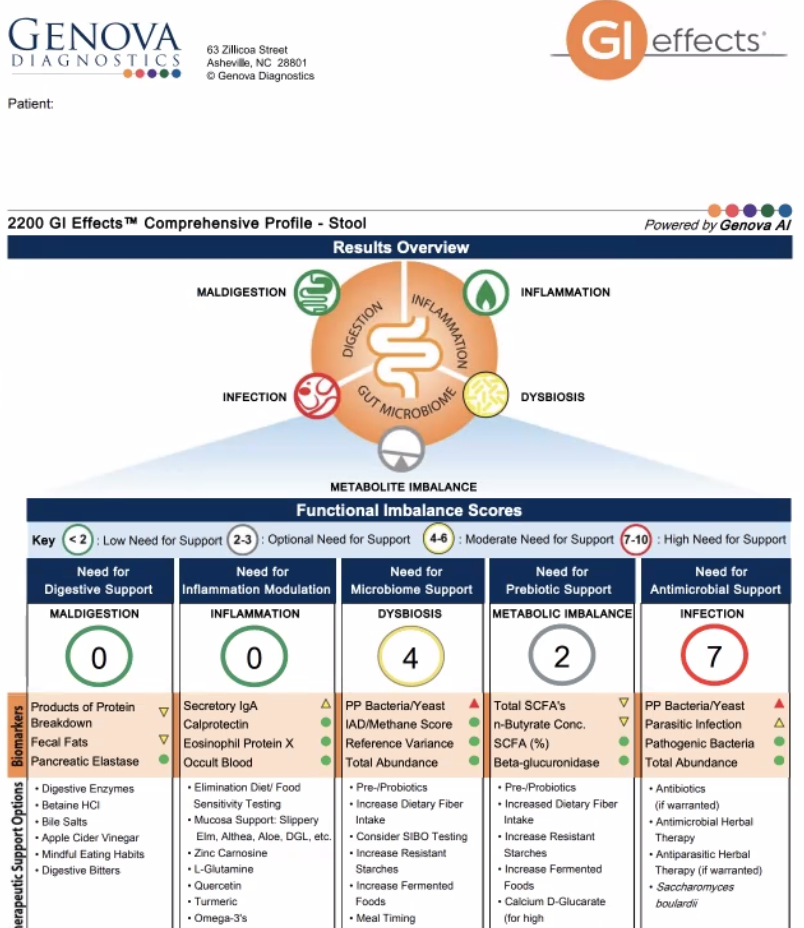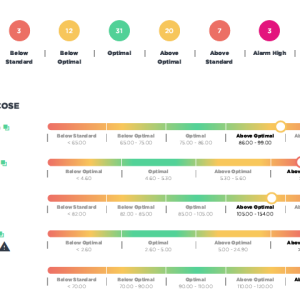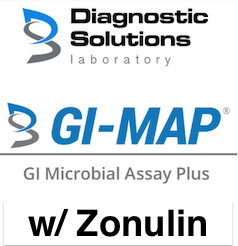Description
The GI Effects Comprehensive Stool Profile can reveal important information about the root cause of many common gastrointestinal symptoms such as gas, bloating, indigestion, abdominal pain, diarrhea, and constipation. This stool analysis utilizes biomarkers such as Calprotectin to differentiate between Inflammatory Bowel Disease (IBD) and Irritable Bowel Syndrome. In addition, the GI Effects test can be used to evaluate patients with a clinical history that suggests a gastrointestinal infection or dysbiosis.
Gut microbes are codependent with one another and with their human host, and the health of one affects the other. A sizeable volume of research associates a dysbiotic, or imbalanced gut microbiome with multiple disease states both within and outside of the GI tract. The diverse metabolic activities of the microbiome ultimately impact the human host, and the activities of the human host ultimately affect the health of their microbiome.
- GI Effects is a comprehensive assessment of complete GI health, assessing the root cause of most gut complaints by combining PCR, culture, and microscopic methods to ensure any and all relevant organisms are identified.
- GI Effects recovers live organisms (yeast and bacteria) for susceptibility testing and improved treatment options.
- GI Effects measures metabolomics and can assess the interaction between the microbiome and its host.
The biomarkers from the GI Effects Comprehensive Profile are reported using the DIG framework, providing key clinical information for three main gastrointestinal functional areas:
- Digestion/Absorption:
- Pancreatic Elastase-1 is a marker of exocrine pancreatic function.
- Products of Protein Breakdown are markers of undigested protein reaching the colon.
- Fecal Fat is a marker of fat breakdown and absorption.
- Inflammation/Immunology:
- Calprotectin is a marker of neutrophil-driven inflammation. Produced in abundance at sites of inflammation, this biomarker has been proven clinically useful in differentiating between Inflammatory Bowel Disease (IBD) and Irritable Bowel Syndrome (IBS).
- Eosinophil Protein X is a marker of eosinophil-driven inflammation and allergic response.
- Fecal Secretory IgA is a marker of gut secretory immunity and barrier function.
- Gut Microbiome:
- Metabolic indicators, including short-chain fatty acids and beta-glucuronidase, demonstrate specific and vital metabolic functions performed by the microbiota.
- Commensal Bacteria demonstrate the composition and relative abundance of gut organisms.
- More than 95% of commensal gut organisms are anaerobic and are difficult to recover by traditional (aerobic) culture techniques.
- GI Effects assesses a set of 24 genera/species that map to 7 major phyla.
- Bacterial and mycology cultures demonstrate the presence of specific beneficial and pathological organisms.
- Bacterial and mycology sensitivities are provided for pathogenic or potentially pathogenic organisms that have been cultured. The report includes effective prescriptive and natural agents.
- Parasitology includes comprehensive testing for all parasites on every parasitology exam ordered.
- GI Effects provides microscopic fecal specimen examination for ova and parasites (O&P), the gold standard of diagnosis for many parasites.
- 6 Polymerase chain reaction (PCR) targets detect common protozoan parasites including Blastocystis spp. with reflex subtyping 1-9, Cryptosporidium spp., Cyclospora cayetanensis, Dientamoeba fragilis, Entamoeba histolytica, and Giardia. PCR for organisms is emerging as a highly sensitive method for infectious organism detection.
- Selection of a one-day or three-day sample collection is based on the clinician’s clinical index of suspicion for parasitic infection. If there is no/low suspicion, a one-day sample will likely be adequate. For high suspicion, a three-day sample collection is optimal.
- Additional Biomarkers Available:
- Campylobacter
- Clostridium difficile
- Escherichia coli
- Fecal Lactoferrin
- Helicobacter pylori
- Macro Exam for Worms
- Zonulin Family Peptide
- KOH Preparation for Yeast




